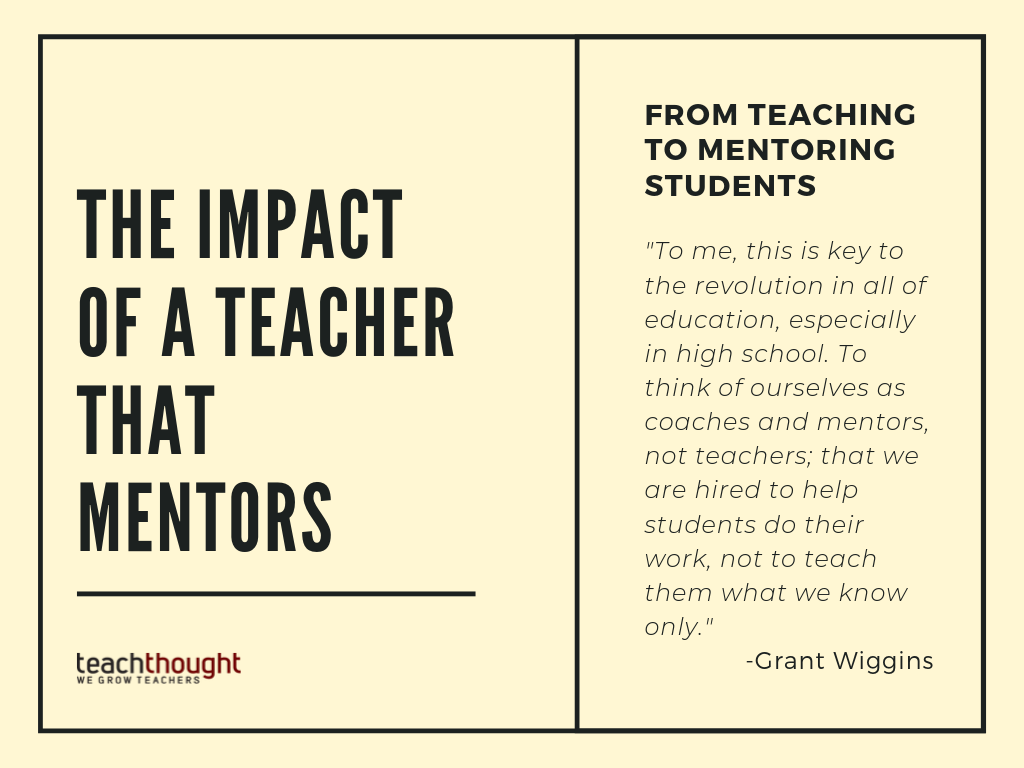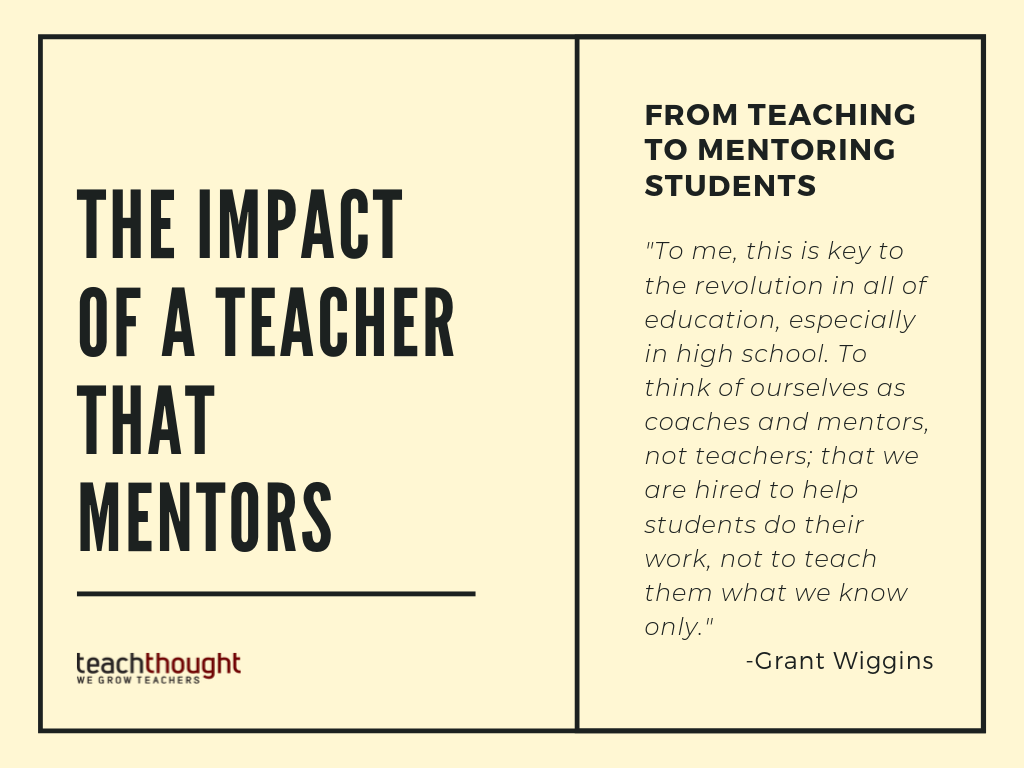
Mentoring Students: The Impact Of A Teacher That Mentors
by Grant Wiggins
Ed note: On May 26, 2015, Grant Wiggins passed away. Grant was tremendously influential on TeachThought’s approach to education, and we were lucky enough for him to contribute his content to our site. Occasionally, we are going to go back and re-share his most memorable posts. This is one of those posts. Thankfully his company, Authentic Education, is carrying on and extending the work that Grant developed.
David Brooks wrote a highly-read and forwarded op-ed piece in the New York Times recently in which he summarized the key findings in a recent Gallup/Purdue poll. The survey looked at success in life and the workplace through the lens of a few key factors in one’s college experience. The survey found, among other things, that having a mentor in college is a crucial determinant of success.
I went and retrieved the report and found sections of the text worthy enough of our attention to quote at length:
“Where graduates went to college— public or private, small or large, very selective or not selective — hardly matters at all to their current well-being and their work lives in comparison to their experiences in college.
For example, if graduates had a professor who cared about them as a person, made them excited about learning, and encouraged them to pursue their dreams, their odds of being engaged at work more than doubled, as did their odds of thriving in their well-being.
See also The Purpose Of School
And if graduates had an internship or job where they were able to apply what they were learning in the classroom, were actively involved in extracurricular activities and organizations, and worked on projects that took a semester or more to complete, their odds of being engaged at work doubled also. Feeling supported and having deep learning experiences means everything when it comes to long-term outcomes for college graduates.
Yet few college graduates achieve the winning combination. Only 14% of graduates strongly agree they were supported by professors who cared, made them excited about learning, and encouraged their dreams. Further, just 6% of graduates strongly agree they had a meaningful internship or job, worked on a long-term project, and were actively involved in extra-curricular activities. Those who strongly agree to having all six of these experiences during their college time are rare — only 3%.
If an employed graduate had a professor who cared about them as a person, one who made them excited about learning, and had a mentor who encouraged them to pursue their dreams, the graduate’s odds of being engaged at work more than doubled. Only 14% of graduates have had all three.”
From Teaching To Mentoring Students
This spoke to me.
Clearly, I and many of us believe in the importance of engaging and sustained work. But perhaps more importantly, I would not have made it through college or graduate school without two mentors: Bob Anderson at St. John’s College, and Carol Gilligan at Harvard Graduate School of Education. Both cared about not only my contributions as students but my own work and how to advance it. It made all the difference.
To me, this is key to the revolution in all of education, especially in high school. To think of ourselves as coaches and mentors, not teachers; that we are hired to help students do their work, not to teach them what we know only. Alas, the curriculum and tradition allow this to only happen mostly at the extremes – primary and graduate school.
It’s high time we brought the same attitude and the concomitant curriculum reforms to the key grades of middle and high school.
This article was excerpted from a post that first appeared on Grant’s personal blog; Grant can be found on twitter here; Mentoring Students: The Impact Of A Teacher That Mentors

